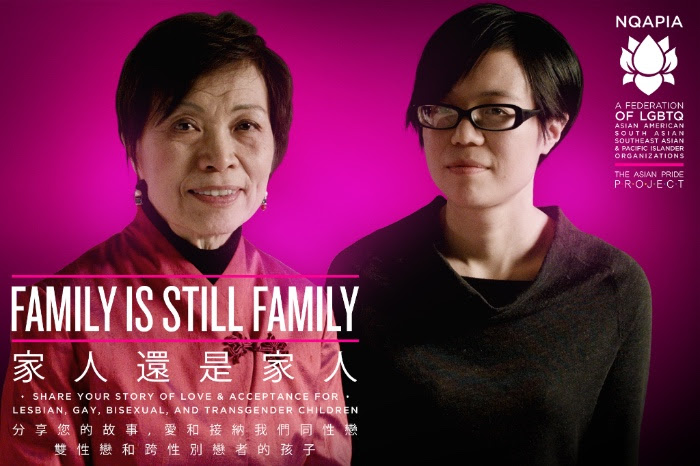Joanne Lee had tears in her eyes as she explained her transgender son’s suicide to about a dozen people at the Leeway Foundation in the Philadelphia Building. Her son, Skylar Lee, killed himself on Sept. 28, 2015, after suffering from depression and feeling that he lacked family support, she said.
Lee speaks across the country to show the importance of family acceptance for LGBT youth.
“It was the turning point of my life because before, I didn’t understand what it was like to be transgender and the types of issues they have,” Lee said during her speech. “Finally, I understood. I understood it, but it cost Skylar’s life.”
Now, Lee tours with other parents in the Asian and Pacific-Islander community, speaking about her experiences as part of the National Queer Asian Pacific Islander Alliance’s Asian Family Acceptance Workshop Tour. The tour has 12 workshops scheduled throughout the country. Hotpot! Philly, a group for Asian and Pacific-Islander queer, gender-nonconforming and transgender individuals, hosted the local event June 11.
Speakers included Lee and Clara Yoon, the mother of a transgender bisexual son. Yoon is also the founder of the API Project of PFLAG (Parents and Families of Lesbians and Gays) in New York City.
Yoon said the size of the crowd at the workshops doesn’t matter.
“Having one person coming in to hear our stories and feel moved and to influence that person to think about how [he or she] can start the conversation at home — that is a success story,” Yoon said.
Glenn Magpantay, NQAPIA executive director, said the media often depicts LGBT people as white, leading some Asian parents to believe their child is LGBT because of American influences. The workshop tour aims to dispel that myth.
“We are here to tell the story that LGBT young people can still achieve all of the hopes and dreams that our parents wanted for us,” Magpantay said. “We can get married. We can be successful. We can have children. We can carry the family line. But Asian parents do not necessarily know that. What we’re trying to do is add more awareness about queerness in a culturally competent way.”
The workshop tour distributes leaflets in several different Asian languages. Magpantay said LGBT-related content is typically distributed in English or in mainstream Asian languages like Chinese. However, the leaflets are translated into several other Asian languages such as Khmer or Lao. The parents involved in the tour also participate in a series of TV ads entitled “Family Is Still Family,” which can be found on YouTube in different languages.
After Lee and Yoon spoke about their experiences, attendees at the workshop divided into small groups to discuss their own experiences and reactions to the speakers’ stories. While emotions ran high during the speeches and discussions, attendees such as Miki Sapiandante, 29, of North Philadelphia, said the experience was empowering.
“[It] is wonderful to hear other people’s experiences especially in regard to culture and ethnicity because growing up I always struggled with being Filipino and being queer. It felt like I always had to choose between one or the other,” said Sapiandante, who also serves as a member of hotpot! Philly’s steering committee.
Sapiandante’s cousin, Patricia Tabamo, 24, of Jersey City, N.J., said this was her first time in an intersectional space. She was visiting family in the area and, upon learning about the workshop, was eager to attend.
“It was really cool to hear how similar everybody’s stories were — that hesitance, the fear, the community estrangement — just hearing it knowing that we weren’t alone was really great,” Tabamo said.
The NQAPIA will host its next Asian Family Acceptance Workshop in Atlanta, Ga., June 18. To learn more about NQAPIA and the workshop tour, visit www.NQAPIA.org.

